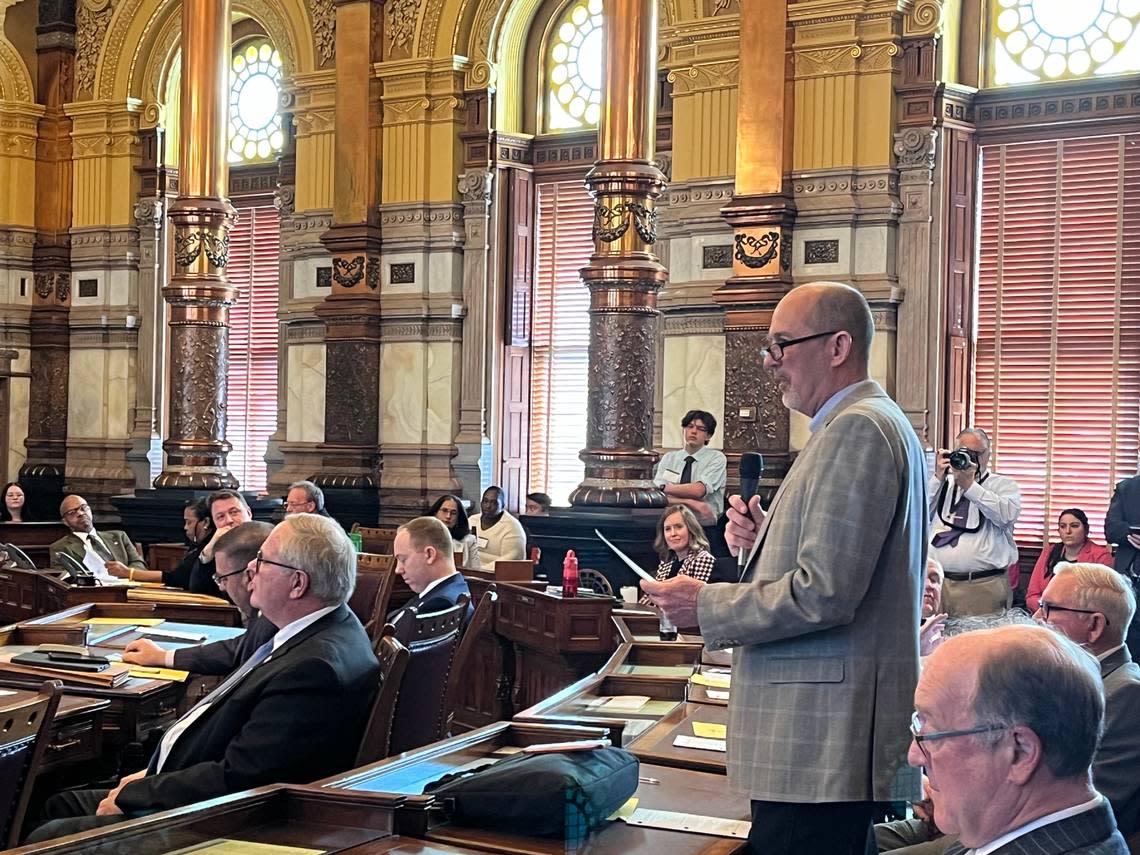Kansas Senate rejects sweeping election changes after lawmakers gave initial approval

The Kansas Senate rejected a bill on Tuesday that would have severely limited mail-in voting and upended the way ballots are counted – after lawmakers had given initial approval to the proposal a day earlier.
Senators voted 18-22 against legislation that would have banned electronic voting machines and remote ballot drop boxes while eliminating the three-day grace period for mail-in ballots.
The vote came after steep criticism from Kansas Secretary of State Scott Schwab, a Republican, who said in a statement Monday that the final bill would “undermine voter confidence and compromise election integrity.”
Democrats rejected the bill as an unnecessary policy that would make it harder for Kansans to vote while drastically increasing the burden on local election officials.
“Kansas has a process for auditing results for elections that has shown them to be accurate,” Sen. Marci Francisco, a Lawrence Democrat, said. “Let’s defend not undermine a system that is working well for our constituents.”
Several Republicans joined Democrats rejecting the policy citing a 20-page amendment added during floor debate on Monday.
The amendment, brought by Sen. Mark Steffen, a Hutchinson Republican, would have banned electronic voting machines and required hand counting of ballots. Steffen pushed for the amendment with unproven claims that voting machines could be manipulated to sway the results of an election.
“It’s a bridge too far for me to support,” said Sen. Ron Ryckman, a Meade Republican.
Sen. Kellie Warren, a Leawood Republican, said she supported the original proposal to eliminate the three-day grace period for mail ballots to arrive after Election Day. However, she said, “amendments were made that deserve extensive scrutiny by the legislative process.”
The bill’s failure sends Republicans who would still like to see limits to mail-in voting back to square one with four weeks left in the legislative session.
Senate President Ty Masterson, an Andover Republican, said he believed an avenue still existed to eliminate the three-day grace period.
“Hopefully lesson learned and those that passionately want something more are willing to settle for advancing steps,” he said.

